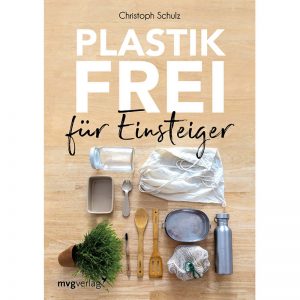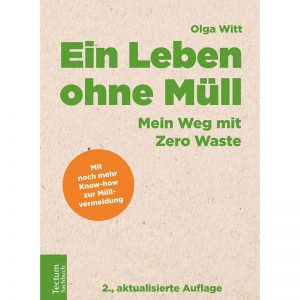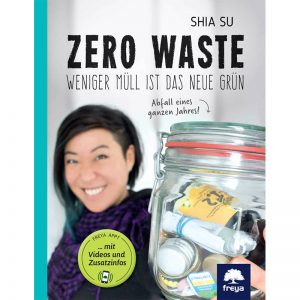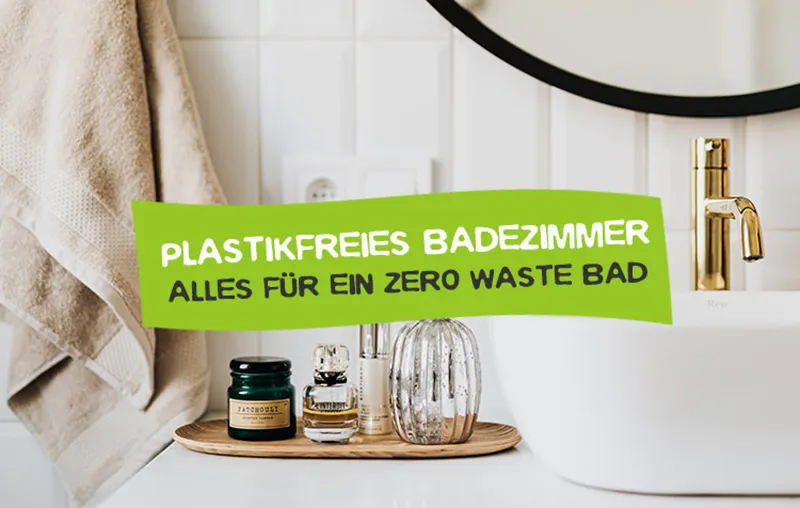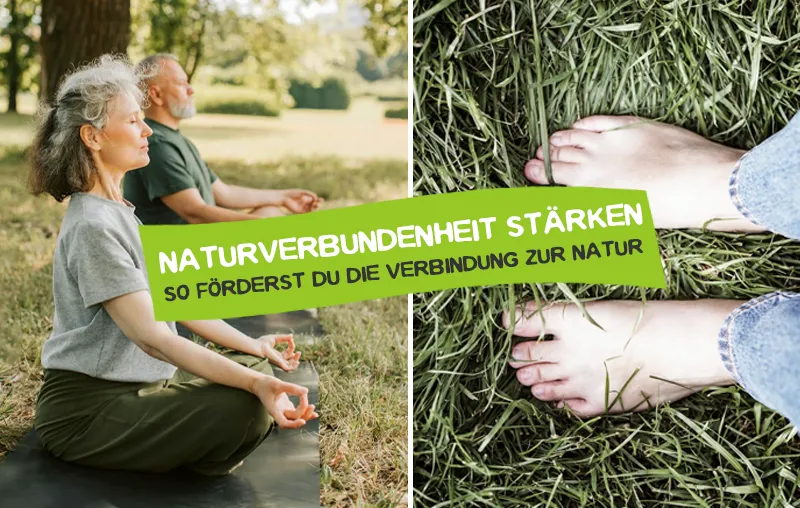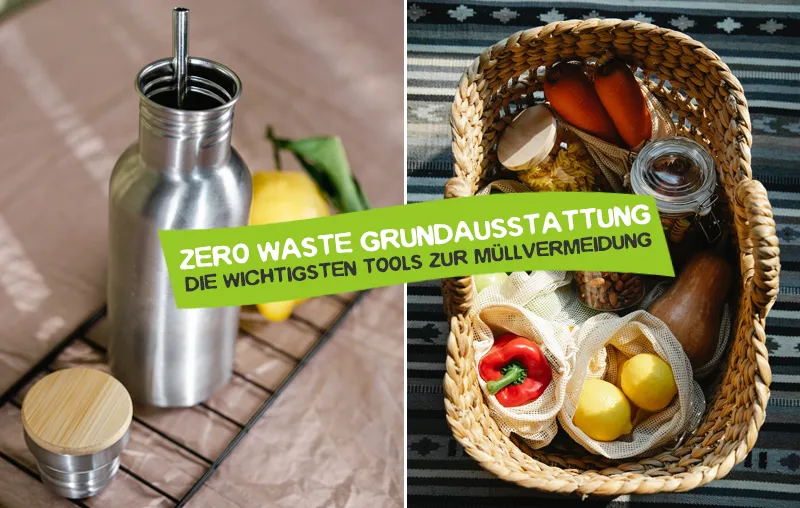Do you want to avoid aluminum? Then you've come to the right place! Whether in kitchen appliances, packaging materials, various components in the electrical industry, in deodorants and in many other everyday products: We basically encounter the shiny metal every day. Also because it is cheap, durable, light and a good conductor of heat.
However, its apparent indispensability is offset by health concerns, high energy consumption and the environmental impact of its production and use. Fortunately, there are ways and means of getting by without aluminum.
In this article, I would like to give you the best tips for an aluminum-free everyday life. You will also find out more about why aluminum is a questionable raw material. Let's go!
Background: Why is aluminum so problematic?

Aluminum certainly has its advantages - and it's hard to imagine everyday life without the metal. But this important metal is often also used in areas where it could be avoided - such as in the packaging and food industries, where it is regarded as a disposable commodity.
A typical everyday example is the use of aluminum foil for the one-off transport of a sandwich. The Ratio of ecological benefit to cost is particularly questionable here. Especially because there have long been healthier and more sustainable packaging alternatives.
In addition, aluminum is much too valuable a raw materialto be used as a disposable product in our Throwaway Society to end.
An overview of the most important reasons for not using aluminum
- Health risks: We ingest aluminum through our food and also bring the metal into contact with our bodies through deodorants and cosmetic products. In science, the health consequences are the subject of controversial debate - there are studies that, among other things, show a Connection with the development of breast cancer manufacture.
- Environmental pollution and destruction: Bauxite mining is associated with significant environmental degradation - including habitat destruction and water pollution. In addition, the production and disposal of aluminum is extremely Resource-intensive and harmful to the climate.
- Waste of resources: Aluminum as a raw material is simply too valuable to waste as a short-lived disposable product. Especially at a time when more sustainable alternatives exist.
Reduce aluminum: How can you avoid aluminum in everyday life?
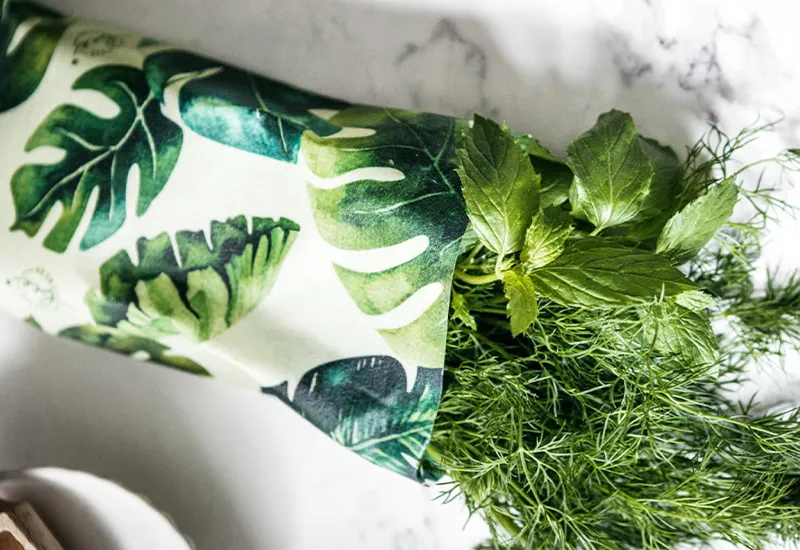
Unfortunately, metal is everywhere in our everyday lives. Yet the mostly unnecessary consumption of aluminum quite simply. Use the following tips now to make your life a little more aluminum-free.
1. use oilcloths and lunch boxes instead of aluminum foil
Instead of aluminum foil, simply use BPA-free Food storage containers made of stainless steel (is available here*), glass or porcelain. But classic plastic cans naturally also avoid waste.
If you are using the aluminum foil Making food last longer or in your backpack, I can also offer you Oilcloths (is available here*) are recommended. Also suitable are Paper or fabric packaging for the transportation or storage of meals and individual foodstuffs.
2. natural cosmetics to avoid aluminum
Aluminum is a component of countless care productsthat we use every day. The metal is found, for example Lipsticks, eye shadows, toothpastes, deodorants or creams.
Therefore always throw a look at the list of ingredients. There are now many alternatives from manufacturers who even advertise their products as being aluminum-free.
Natural cosmetics with purely natural ingredients is the best choice in this respect. The best thing to do is to take a look at here in the Avocadostore* um.
Tip: Your You can also make your own deodorant. Then you can be absolutely sure that you are avoiding aluminum. One Further option also offers you this solid and aluminum-free deodorant*.
3. cook for yourself to avoid aluminum waste
Experience has shown that a lot of packaging containing aluminum is used for food. Therefore, if possible, avoid buying Ready meals in aluminum trays, packet soups, sauce powder and from Canned fish and Chocolate bars.
Instead, I prefer to prepare my meals and treats self and fresh to. This not only reduces my everyday aluminum consumption, but is also significantly more environmentally friendly. healthier and tastier.
As a constant source of inspiration, I use the Vegan & Easy" cookbook (is available here*) by Bianca Zapatka.
4. use casserole dishes and reusable grill trays
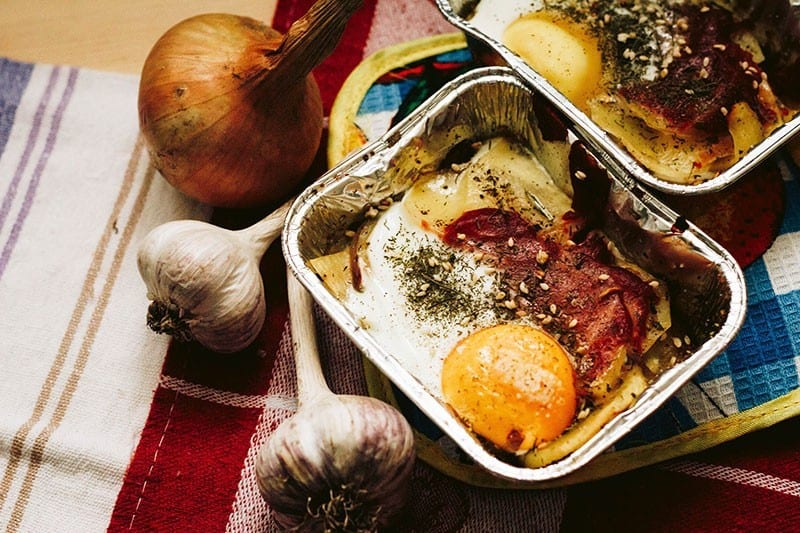
Disposable aluminum trays and wrapping in aluminum foil are of course completely superfluousas there are much better options for both the grill and the oven.
To prepare casseroles, baked vegetables, stuffed peppers and other delicious dishes in the oven, normal Glass casserole dishes (is available here*) serves this purpose at least as well.
And for grilling, simply use reusable and environmentally friendly Reusable stainless steel grill trays (is available here*) during preparation. It can be so easy, don't you think? 🙂
Good to know: You can also find more waste-avoiding tips in the detailed article on the Barbecue without plastic.
5. use a stainless steel pan without aluminum
The Federal Institute for Risk Assessment (BfR) advises for preparing acidic and salty foods in particular from uncoated aluminum containers or aluminum foil. So if you want to stock up on new kitchen utensils soon, you should consider the Stay away from pans made of cast aluminum.
Instead, reach for a Stainless steel pan (is available here*) back. Pans made of cast iron or with Ceramic coating are good alternatives.
To be on the safe side, inform yourself before you buy Just check again whether the pan contains aluminum. Unfortunately, the first glance is often deceptive.
6. drink from reusable containers instead of aluminum cans
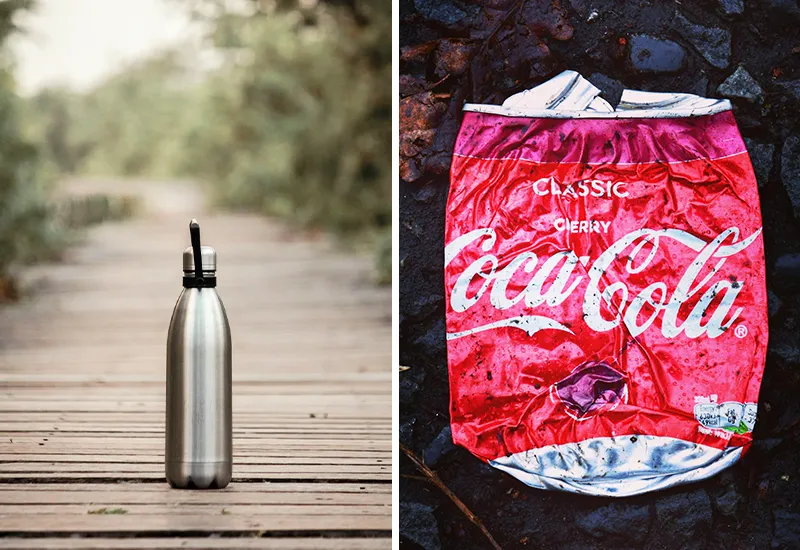
Cans can be made of tinplate or aluminum. Beverage cans tend to be aluminum and food cans tend to be made of tinplate. However, manufacturers are once again frequently using aluminum, especially for canned fish.
However, you can quickly identify the material with a simple trick: Simply hold a magnet to the can. Aluminum is not magnetic, tinplate is.
However, I would generally advise you to take your drinks from reusable stainless steel drinking bottles (e.g. this one*) and Cups (e.g. this one*) - whether water, energy drinks, beer or lemonade.
Also, switch to reusable containers and consume your Favorite soda preferably from the glass deposit bottleto produce less aluminum waste.
7. buy sweets without aluminum foil
From Chewing gums about Sweets up to the popular Chocolate SantasSome candy manufacturers unfortunately still use aluminum foil for their packaging.
As they mostly clearly visible you can usually avoid sweets packaged in aluminum and switch to alternatives.
To initiate a change in packaging, in addition to your demand for aluminum-free sweets, you can use the Actively redesign the product. For example, by using a friendly Send an e-mail or call the manufacturing company. She should always be interested in what customers want 😉.
8. specifically minimize aluminium intake via residues
Aluminum can enter the body through various sourcesaccumulate there in the long term and damage our health. Besides Foodwhich are often found in aluminum foil or coated packaging, as well as cosmetics to which aluminum is added, the metal can also be released via Kitchen utensils or Pharmaceuticals get into our bodies.
So always make sure that you are less exposed to aluminum residues. For example, use Stainless steel tableware and take chemical medicine more consciously for example, only if there is an absolute need or if your doctor prescribes it.
9. avoid Tetra-Paks with aluminum
Just like drinks cans, Tetra-Paks are certainly extremely practical, they also contain aluminum and unfortunately also cause enormous mountains of waste.
So give up iced tea, juices or even animal milk from drinks cartons and switch to Glass bottles around - or Make your own drinks quickly and easily.
Tip: Why I no longer drink cow's milk as a veganI will be happy to explain them to you in more detail in a separate blog article.
10. replace coffee capsules with reusable alternatives
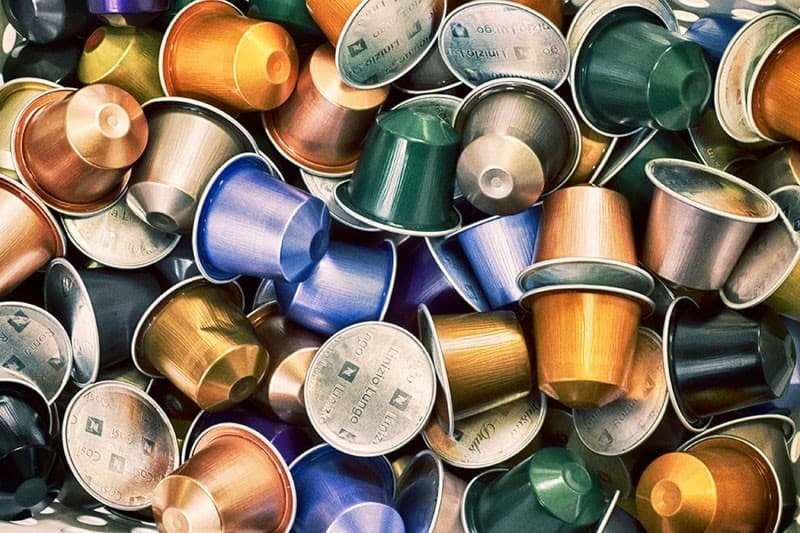
After Calculations by Deutsche Umwelthilfe (DUH) we Germans consume a total of around 2.8 billion coffee capsules every year. Figuratively speaking, that's a mountain of waste amounting to 9,700 tons of aluminium, plastic and paper waste. They are also incredibly expensive.
To avoid waste, you should focus on fair Coffee beans (is available here*). And if you have a capsule coffee machine or use it in the office, for example, replace the disposable capsules with such reusable capsules made of stainless steel*. Although you have to fill the ground coffee yourself, you are helping our environment and your wallet immensely.
Living without aluminum, made easy!
As you can see, it's really easy to avoid aluminum in everyday life. But not everyone knows why this makes sense. Those who are interested in the Resource conservation is not sufficient, at the latest the suspicion of Federal Institute for Risk Assessment motivate people to use aluminum as a trigger for certain Diseases such as dementia or breast cancer.
"Be the change that you wish to see in the world."
Mahatma Gandhi, Indian pacifist
I hope I have been able to show you here, how easy it isto significantly reduce or even completely avoid aluminum in everyday life.
Do you have any questions, tips, or your own experiences with avoiding aluminum that you'd like to share? Then feel free to leave me a comment.
Stay sustainable and healthy,

PS: Doing without aluminum can be worth its weight in gold. Much of my work with CareElite actually revolves around the Life without plastic. If you want to know more about it, I can give you my Book plastic free for beginners (is available here*) to your heart. Have fun reading!

